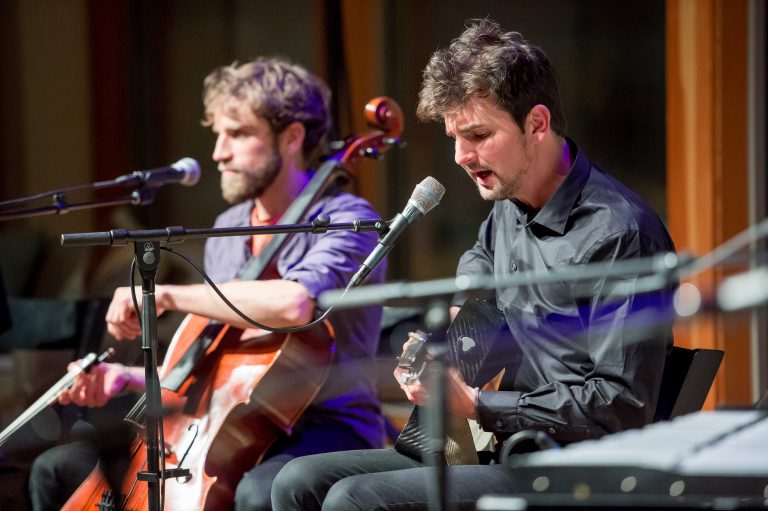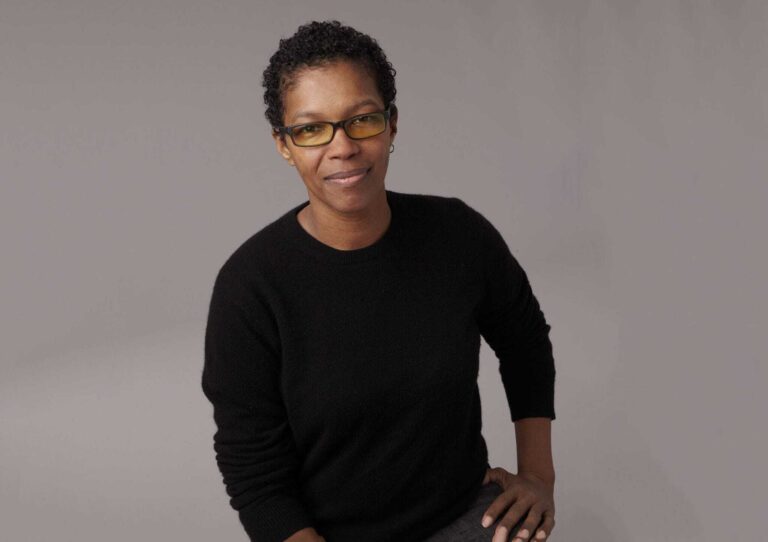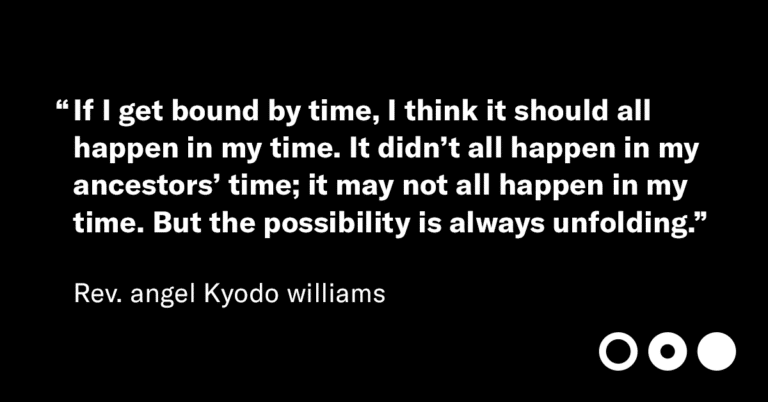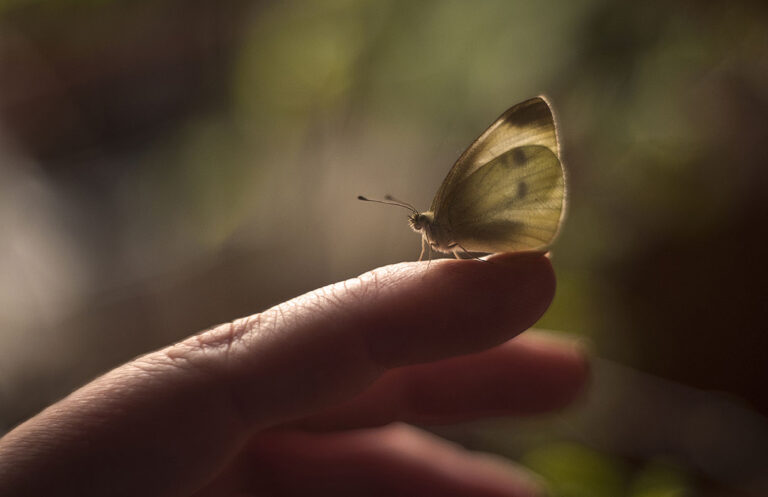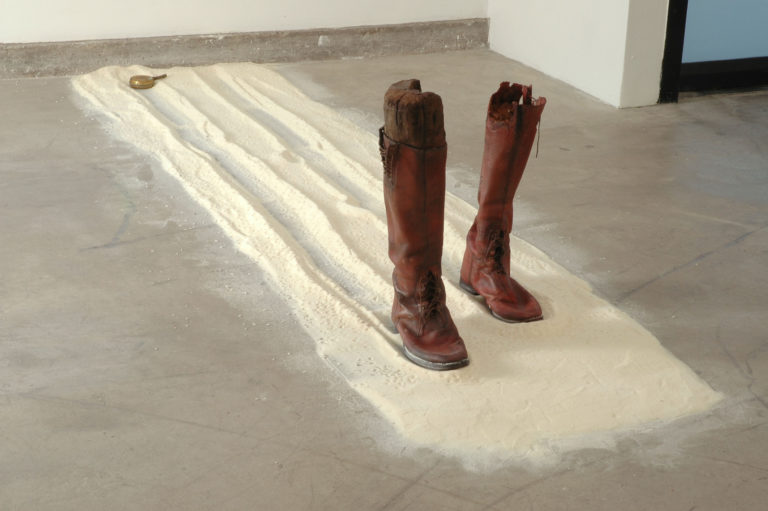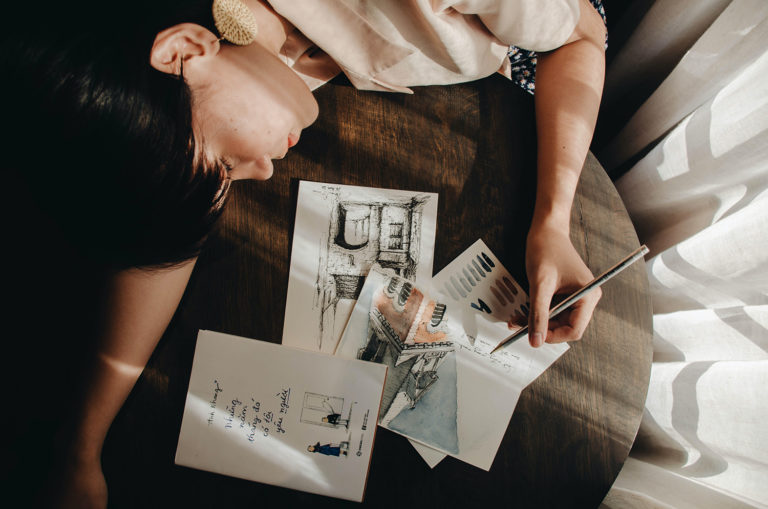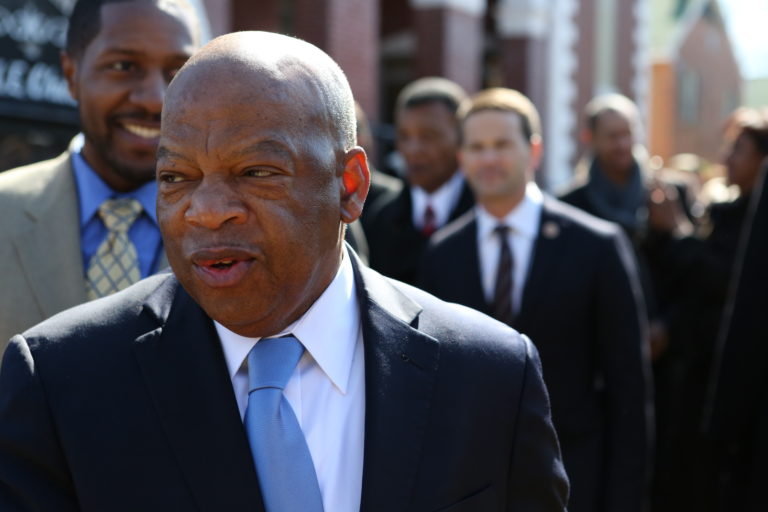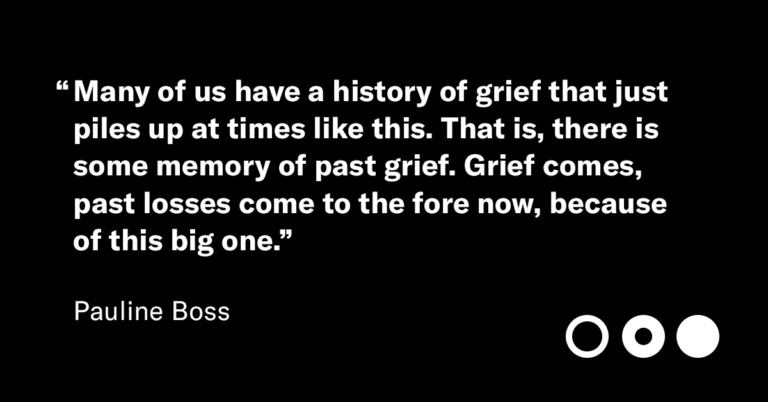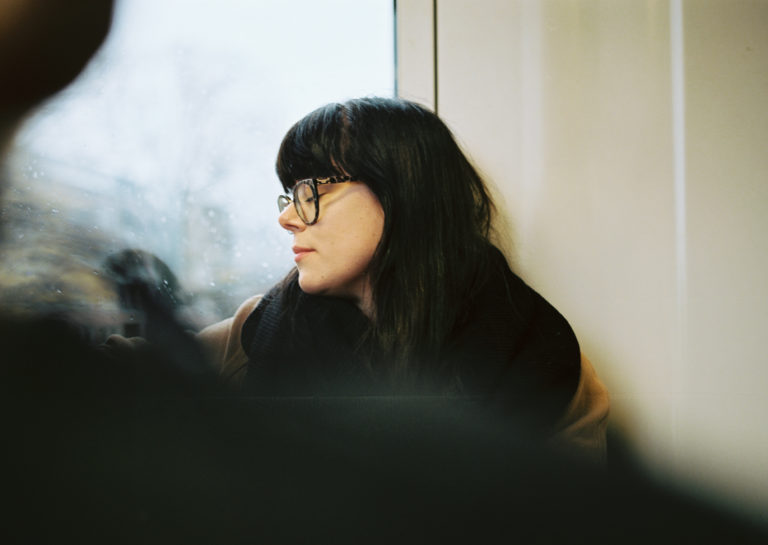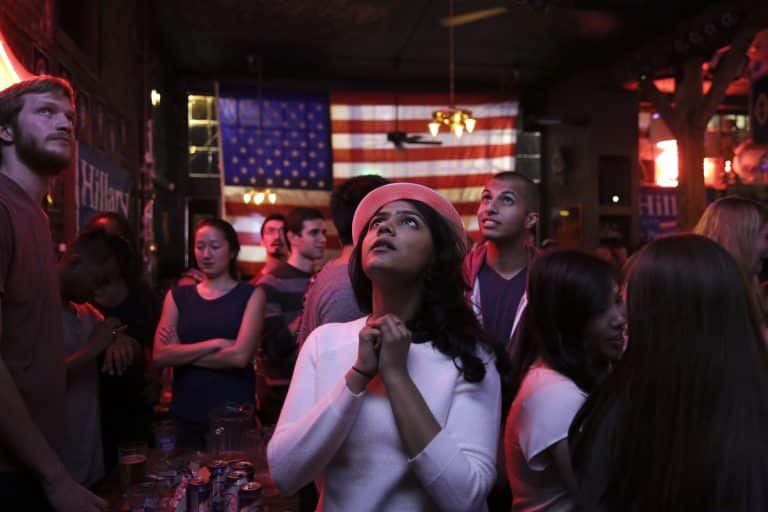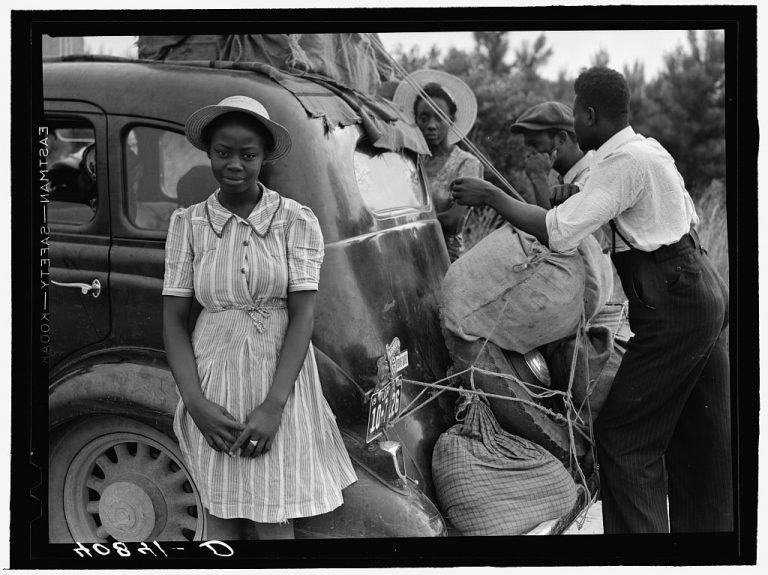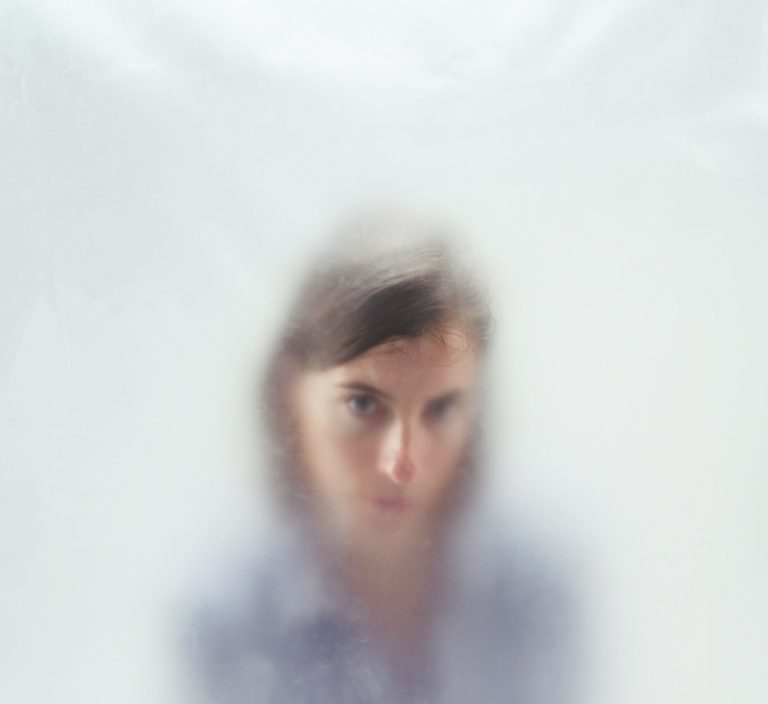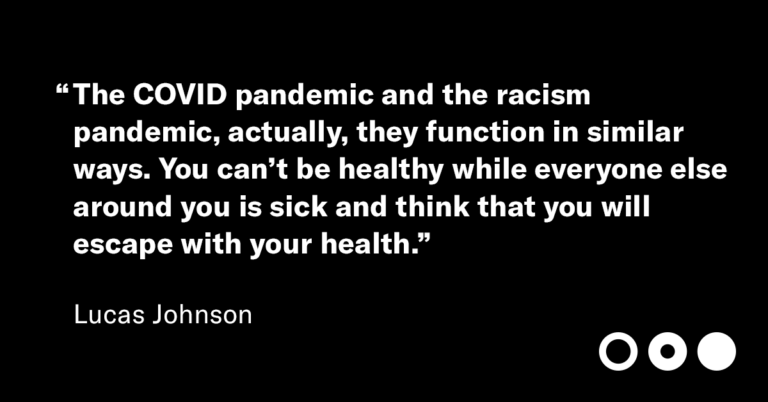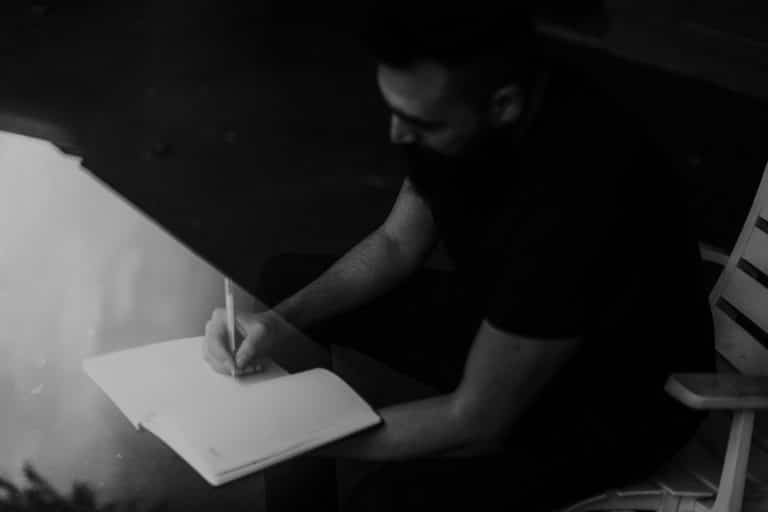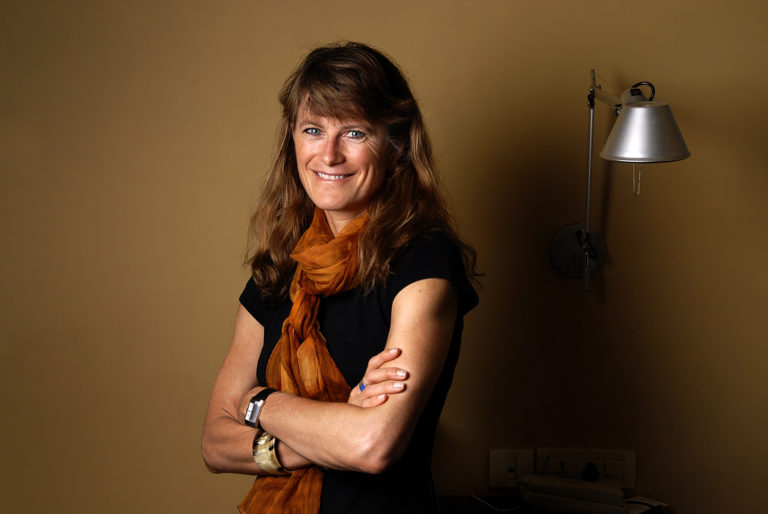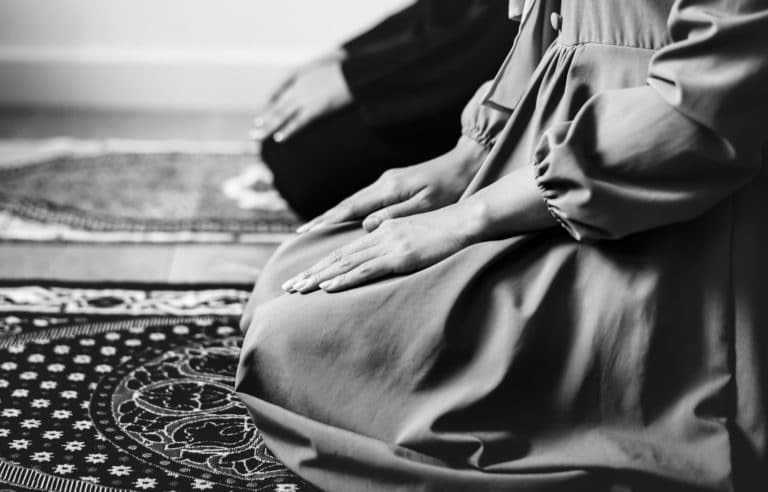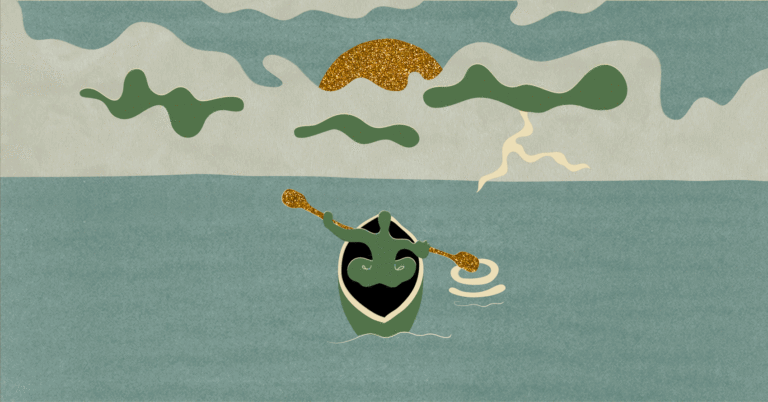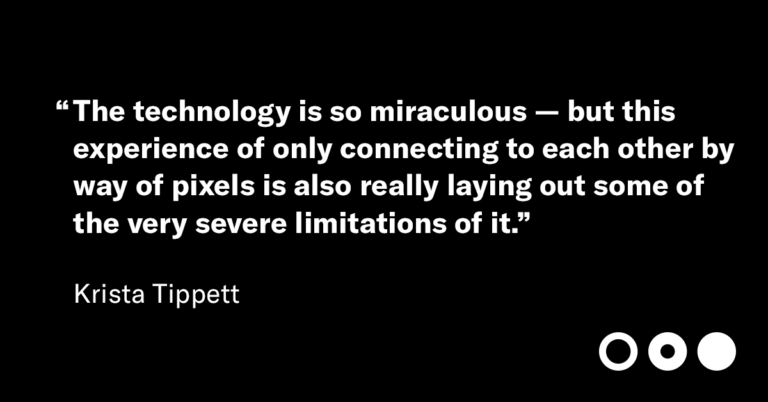September 17, 2020
Craig Minowa & Cloud Cult
Music As Medicine
Music is a source of solace and nourishment in the best of times and the hardest of times. It has been for so many of us in this year of pandemic, and Cloud Cult is on every playlist Krista makes. Craig Minowa started the band in 1995. Its trajectory was cathartically changed the day he and his wife Connie woke up to find that their firstborn two-year-old son, Kaidin, had mysteriously died in his sleep. The music that has emerged ever since has spanned the human experience from the rawest grief to the fiercest hope. We welcomed Craig and the whole Cloud Cult ensemble to On Being Studios in Minneapolis, for conversation and music, in 2016.





